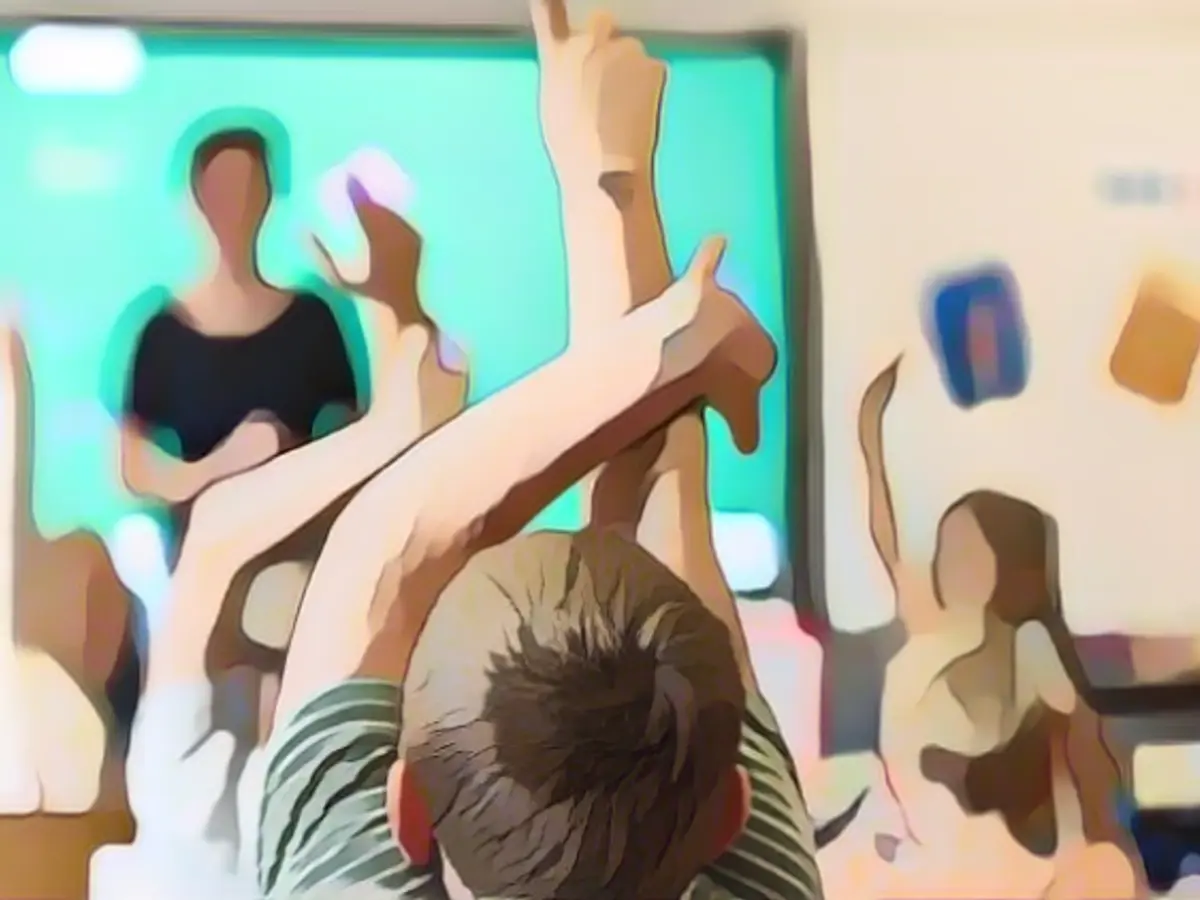Three ways out of the PISA plight
Germany has a new PISA shock. The country's pupils are performing worse than ever in the OECD's cross-national study. In reading, mathematics and science, 15-year-olds in Germany are only just above average. Experts and associations are not surprised by this, as the problems in the German education system have been known for years.
In addition to the general decline in performance, which has become apparent in the national average due to the corona-related school closures, there are numerous construction sites in Germany: Teacher shortages, immigration, poor school facilities, lack of early education - to name just a few. There is no shortage of causes, but what can be deduced from this? Three approaches.
1. expert calls for a rethink
Marion Zirngibl attributes Germany's poor performance in the PISA study primarily to social inequality in the country - and how this is dealt with. "For 20 to 25 percent of children growing up here, the right to participation is not fulfilled," says the education expert from the children's rights organization "Save the Children" in an interview with ntv.de.
According to a study by the Bertelsmann Foundation, one in five children in Germany is at risk of poverty. However, the reality of these children's lives is hardly taken into account in schools and daycare centers. Counteracting this is not primarily a question of money, but of attitude.
"Educational institutions need to ask themselves: what do these children bring to the table, where can they develop or participate?" says the education expert. The focus is often rigidly on curricula and subject matter, but children from low-income families in particular are often unable to follow up on lessons. Schools need to become more sensitive in this respect, says Zirngibl.
She also calls for a different view of children. "We need to see children and young people as competent people, even if they may not be good at math," says the education expert. This could be achieved through alternative projects in which teachers and pupils work together on an equal footing, for example in the design of a safe, comfortable classroom. "Of course, we also need more teachers and better equipment in schools. But the question is: what can be implemented immediately? Much more is possible," says Zirngibl.
2. a "special fund for education"
Germany has been increasing its spending on education for years. Whereas in 1995 it was just under 76 million euros, in 2022 it will be more than 176 million euros. However, according to a comparison from 2020, per capita spending on educational institutions was below the OECD average. In view of a "run-down school system", acute staff shortages and increased migration, sociologist Aladin El-Mafaalani is calling for a "special fund for education" of 100 billion euros.
"Without such a signal, we won't even be able to keep the current teachers in the school system, and we won't be able to make the job attractive for the next generation of teachers. They can see how the most committed ones are ruining themselves today," El-Mafaalani told Stern magazine. According to the sociologist, however, time is running out to send such a signal. "My concern is that in future, elections will be decided primarily by pensioners. That's why we need to fight the necessary distribution battles now; in a few years' time, this will probably no longer be possible."
3. learning from the top nations
When it comes to education policy, Finland is often cited as a role model. In fact, the country ranks among the top countries in all three categories of the PISA study. In the 1990s, the country radically changed its school system. A compulsory pre-school year was introduced and children attend a community school for the first nine years. Only then do they move on to either a grammar school or a vocational school.
The situation is similar in Estonia. The Baltic country performs best of all European nations in the PISA ranking. There, too, all pupils learn together up to year 9. In addition, lower-performing children and young people are dealt with differently than in Germany, says education researcher Olaf Köller to the Tagesschau.
"You take them out and give them special support," he says. Estonia has set up special advice centers for this individual support - a first in Europe. "That's another thing we're missing out on: looking at the weak pupils and then providing really clever offers to systematically support them," says the expert.
Read also:
- Snow chaos further restricts Bavaria
- Unanimous decision: faster wolf culls possible
- The year of climate records: extreme is the new normal
- Snow and ice paralyze southern Germany
- In contrast to Germany, Estonia, which is often mentioned as a model in education policy, has a more inclusive approach towards struggling students, providing them with individual support and specialized advice centers.
- The PISA study has shown that Finland, another top-performing nation in education, introduced a compulsory pre-school year and a community school system for the first nine years before separating students into grammar or vocational schools.
- The teacher shortage issue in Germany has led some experts to look towards Finland and Estonia for inspiration, as both countries have successfully managed to support underperforming students and promote a more equitable education system.
- Marion Zirngibl, an education expert from the children's rights organization "Save the Children", suggests that German schools need to adopt a more inclusive approach and view children as competent individuals, providing them with opportunities to develop and participate in alternative projects.
Source: www.ntv.de






